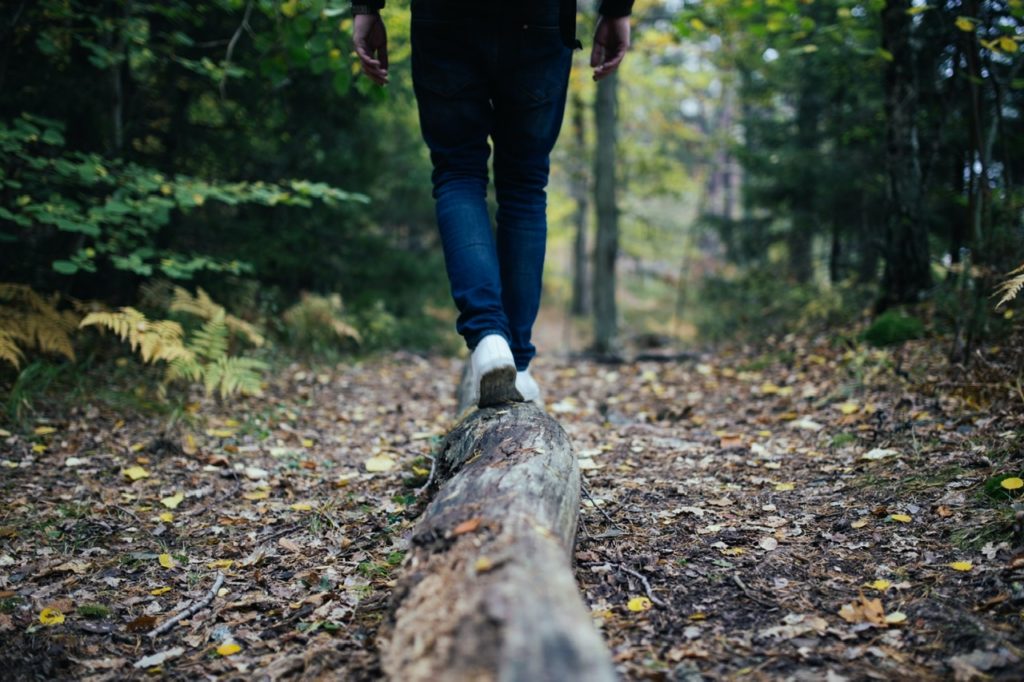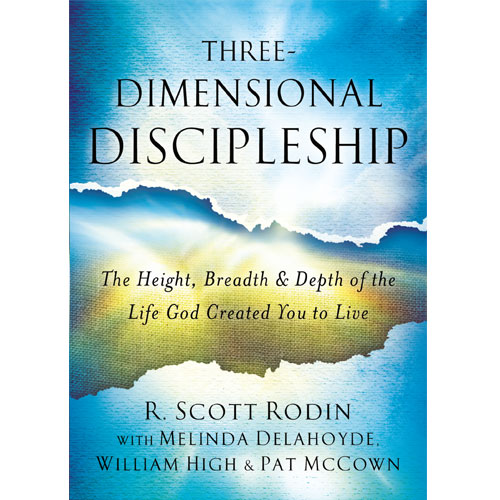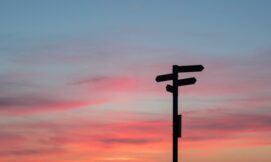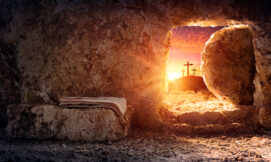Stewarding our Health Faithfully in an Age of Denial and Fear

For the past 15 months, we have thought more about our health, and the health of our neighbor, than possibly at any other time in our adult lives. The pandemic has focused attention on what it means to be healthy, stay healthy and keep our neighbors healthy. Like every other area of life, our health and the way we care for it is a stewardship issue. Let me share two examples to set the stage for how I believe we should understand what it means to steward our health. Consider these two men.
Jim Fixx was the poster boy for fitness in the 1970s. He transformed himself from an overweight smoker into a world class marathoner. He wrote The Complete Book of Running, a best seller that is credited with starting the jogging revolution. He was passionate about his health and helping others recover theirs. This model of health and fitness was out jogging in Vermont at the age of 52 preparing for yet another marathon when he collapsed and died of a massive heart attack.
Al Voigt had a small furniture refinishing and upholstery business in Tacoma Washington in those same 1970s. Although raised on a farm, Al found working with his hands in furniture to be his passion. The only thing Al loved more than his work was his food. Habitually 30 to 40 pounds overweight, Al started every morning with three eggs cooked in bacon fat, several slices of bacon and coffee. His favorite part of the prime rib was the fat, and in all the years I knew him I never saw him pass by an ice cream shop. I don’t believe Al intentionally exercised a day in his life. He was a rotund man, often tapped to play the perfect Santa Claus. He was what you might call a walking heart attack, breaking all the rules, with seemingly little chance of living to old age. Al died at the age of 92, primarily because he just got tired of living. He stopped eating and let nature take its course. His doctor said that, had he chosen to continue eating, he probably had several more years to live. Al Voigt was my grandfather.
Jim Fixx and Al Voigt. Their stories illustrate what seems to be the injustice of our health. Every day we hear stories of people who “die before their time” and others who seem to hang on forever despite a host of ailments. We all have friends and perhaps family members who are struggling with cancer. Cancer seems to hit with total indiscrimination. It knows no age or gender, no ethnicity or religious affiliation. The same can be said for a host of illnesses and diseases that seem to follow no pattern. The randomness of the diseases that kill us could scare us to death if we thought about it too long.
And now we have seen the same with this pandemic. Some who got COVID reported barely more than a mild cold, others died a horrible death gasping for breath, separated from their loved ones. The same is true with a vaccine. Some reported nothing more than a sore arm, others took days to recover from the side effects. And the communicability of the disease is equally questionable. Ten people in a room all exposed to the same carrier; four get nothing, six get the virus, of them 3 have mild symptoms, two have severe symptoms and one dies.
What are we to make of this seemingly nonsensical way in which illnesses and diseases seem to attack us? Where is God in all of this and what does it mean for the way we steward our health?
When asked about applying biblical truth and steward theology to our everyday experiences, I am constantly taken back to 1 Corinthians 3:5-9. This is the familiar verse where Paul tells the church in Corinth that while he may plant and Apollos may water, it is ultimately God who brings the increase. What I love about this verse is its challenge to us to understand that in our life we have responsibilities to steward all that God has given us, and to do it faithfully. We are called to plant and water with excellence. We are called to be caretakers and nurturers in every sphere where God has gifted us with life and the things he provides for our health and happiness. This includes our relationship to God, to our self, to our neighbor and to creation. But we also recognize that in each these areas God is ultimately in control. ‘Bringing the increase’ means that God’s will will be done. The outcomes of our work are in his hands, and the results of our faithfulness are depended upon his blessing, his sovereignty, and his divine will.
With regard to our health, I believe this teaching gives us a clear way forward even in the midst of the vagaries of the illnesses that may plague us. As stewards we must ask what it means for us to plant and water faithfully with regard to our health? How are we called to steward our health in a way that honors God and acknowledges that our life and our health, our breath and every system in our body is a gift from him? How do we care for ourselves in ways that acknowledge that our bodies are the temple of the Holy Spirit? That we are to care for our physical well-being understanding that it is one of God’s most precious gifts to us?
Clearly there are significant implications here for what we eat, how we exercise, and the general care with which we steward our bodies. It should also have implications for our use of the very best of the medical industry. It should include regular physical check-ups with our doctor. It should lead us to ask God what is the very best way in which we can care for the bodies he has given us with regard to immunizations, vaccines, preventive healthcare, regular health screenings, and monitoring things like blood pressure, BMI and other critical factors. Some in the church teach that our physical health is not a spiritual issue. We must confront this denial head on. If our bodies are gifts from God for us to steward, if we were to plant and water faithfully, why would we not take advantage of every opportunity available to us to make sure our bodies are as healthy and fit, as prepared to fight diseases as they possibly can be? To do less would not only be unfaithful, it would be a sign of ungratefulness for what God has given us.
With this strong admonition to be caretakers of our physical bodies, our steward theology also leads us to acknowledge that ultimately our health is in God’s hands. For all the reasons we stated above, we cannot expect a direct cause-and-effect relationship between our stewarding of our bodies and the ultimate health and well-being we will experience. Admittedly there certainly are indications that the healthier we are the more fit we will be to do the work of the kingdom. However, our days are numbered, our life is in God’s hands, and when he is ready to take us home, all of the protein shakes and deep knee bends will not forestall his hand.
This should not cause us either fear or discouragement, but exactly the opposite. We rejoice with Paul when we says, “for me to live is Christ and to die is gain.” (Philippians 1:21) As stewards we live every day to its absolute fullest, stewarding every part of our lives including our well-being and our physical bodies. We do this as a form of worship, as thanksgiving to God for his gift of this wonderful physical frame. We do this faithfully, not expecting that somehow it will magically forestall our demise, but knowing that when the end has come, we can stand before the Lord confident that we have planted and watered faithfully. Whether that day comes in our 20s, 30s, 40s or in our 80s, 90s or beyond, that’s in God’s hands. The potential longevity of our life should not be a factor in our desire to faithfully steward the body that God has given us. As Martin Luther once said famously, “if I knew the world was ending tomorrow, I would still plant a tree today.” May it be so of us with our stewardship of our physical bodies.
How do we steward our health in these days? Let us begin by refusing to get trapped into the fear and hysteria of the world around us that frantically looks for every anti-aging drug, every new exercise program, and every miracle vitamin and exotic shake to try to eke one more day out of life. Let us also refuse the denial of those who believe that stewarding our bodies is not a spiritual issue. Instead, let us live as if we knew that death for us is a joyous transition into the presence of our Lord and Savior Jesus Christ. And on this side of death, let us be faithful stewards of our bodies, always prepared to give all the energy and focus we can to the work of building God’s kingdom; planting and watering faithfully, caring for our bodies, making every decision about what we eat, how we exercise, the vaccines we choose to take and the medical advice we choose to receive as a stewardship issue.
Our body does not belong to us, and the choices we make when taking care of it shouldn’t either. We must seek God’s wisdom for how we steward our body. May we be found faithful in our choices for God’s glory, and may those choices serve as a witness to our understanding of his ownership of all things and prepare us for the glorious day when our flesh and bones be returned to the dust and we will stand in the presence of the Lord with a glorious new body, ready to worship him for eternity.





